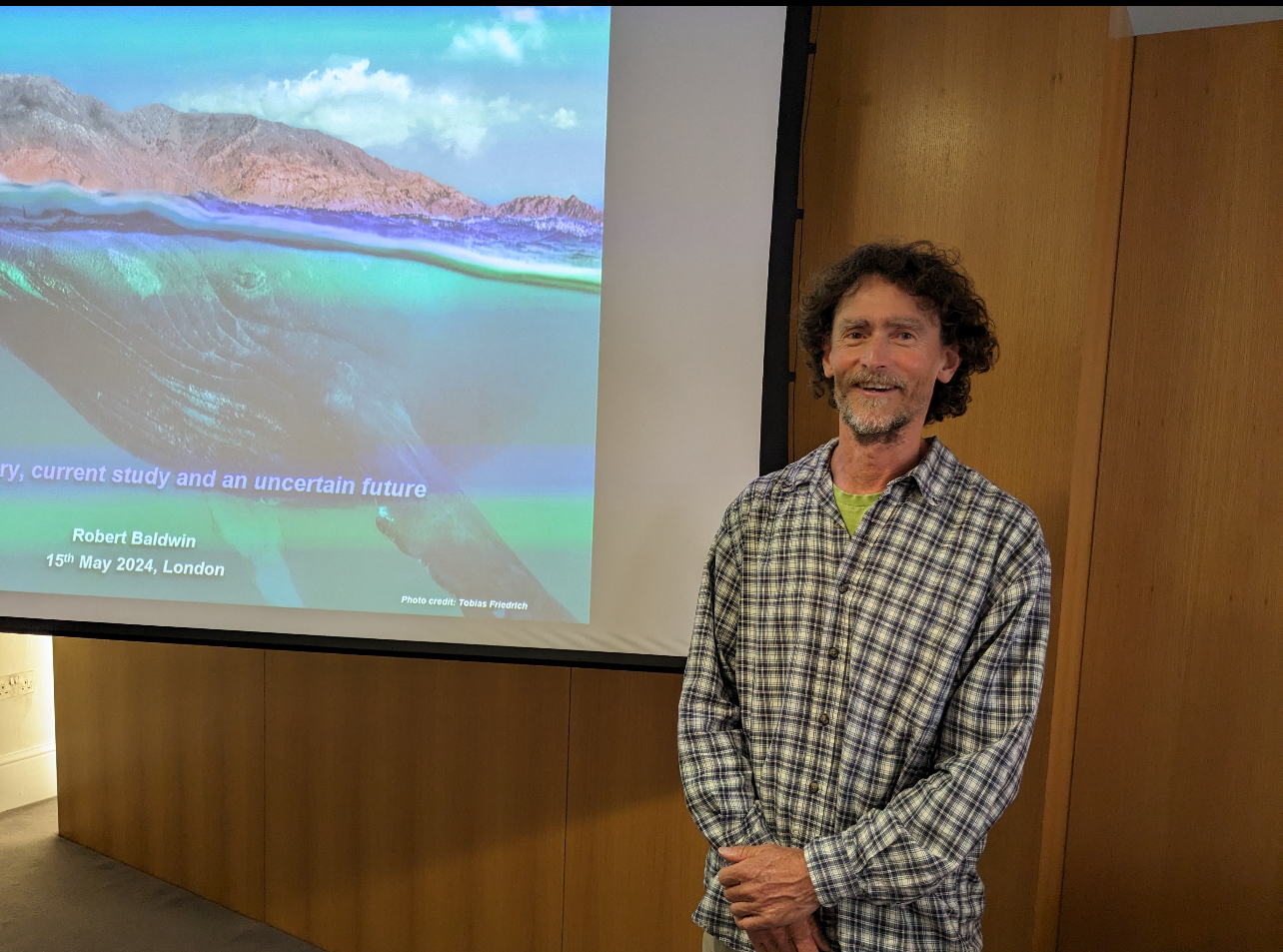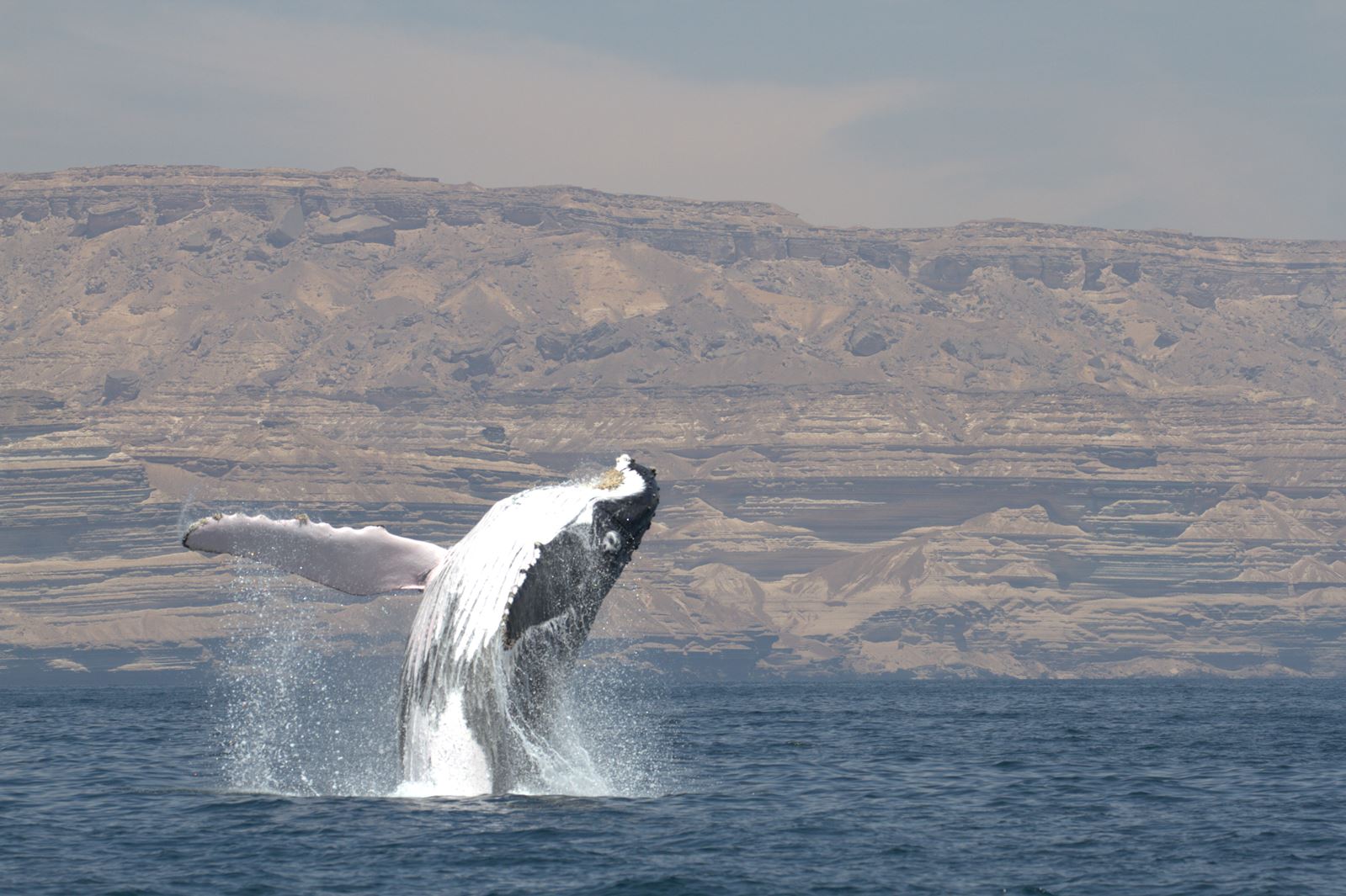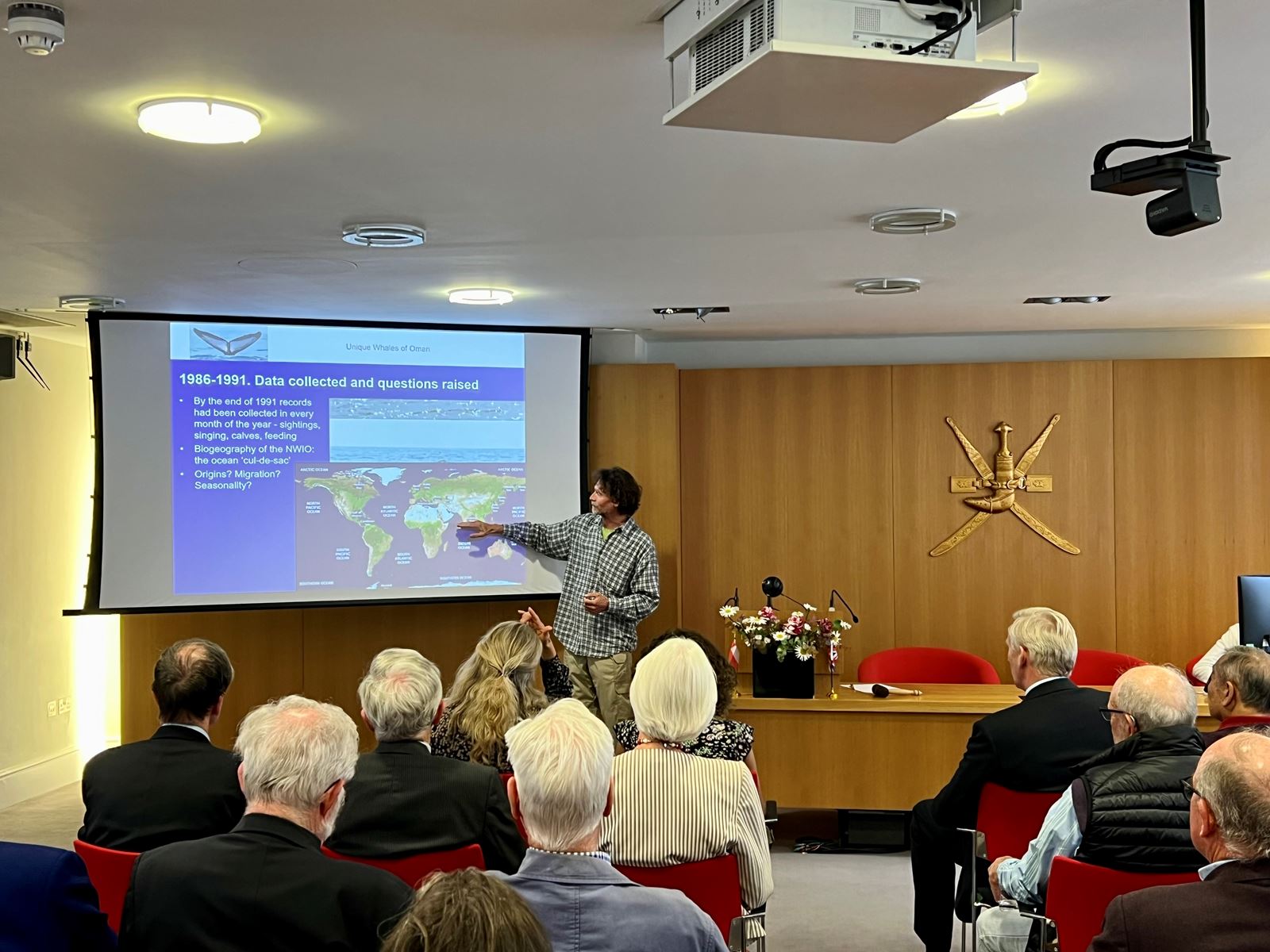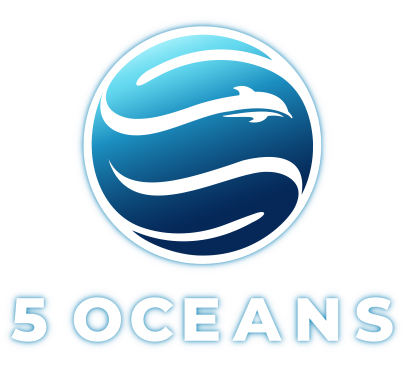
We had the opportunity to ask a few questions to our recent guest speaker Rob Baldwin about his lecture "The Unique Whales of Oman."
Rob is a well-known marine conservationist, specialising in marine mammals and sea turtles of the Arabian region, and also has wider interests both taxonomically and geographically. He has skills in many environmental fields, from EIA and protected areas planning to education and sustainability, all with the ambition of making positive contributions towards a better world.
Rob works on numerous committees and advisory boards of national and international organisations, such as IUCN, CMS, IWC, IOSEA and others, makes it his business to get involved in networks, such as the UN's Eye on Earth, and is regularly consulted, particularly in the Arabian region, by host governments and other organisations on matters related to the marine and coastal environment.
Q: Can you talk to us about what makes the Arabian Sea Humpback Whale so unique compared to other species of whales?
Rob: The Arabian Sea humpback whale population is non-migratory, and feeds and breeds only in the Arabian Sea region. Genetic study suggests that the population separated from Southern Ocean humpback whales approximately 70,000 years ago and has since been isolated in the region.
Q: You talked in your lecture about tagging the whales and learning more about them through these tags. Did this reveal anything surprising about their behaviour? Are there more mysterious aspects of their behaviour?
Rob: Satellite tagging studies have provided a relatively large amount of information about Arabian Sea humpback whales in a relatively short time period. Among key findings is the high site fidelity of the whales: in other words they tend to remain in and return to favoured, limited locales. These include small areas that are most often frequented (‘hotspots’) off Oman in the Gulf of Masirah and off the coast of Dhofar. However, the studies also revealed occasional exceptions to this residency pattern, including one female whale that travelled across the northwestern Indian Ocean from Oman to the southern tip of India and back. The studies also revealed that whales spent most time in shallow water (<20m) but also undertook deep dives (>200m) further form shore. Further studies will gradually reveal more information about the highly unusual behavioural ecology of Arabian Sea humpback whales and, given that this population does not migrate, it could potentially provide insight to the globally unanswered question of why other whales do migrate.

Q: This species is known not to migrate. What are the factors that keep them from migrating? Is this unlikely to change?
Rob: It is thought that Arabian Sea humpback whales have been able to survive without the need for migration due to the sustained, seasonal upwelling of cold, nutrient rich waters associated with the southwest monsoon weather system, which fuels marine ecosystems and provides the whales with a reliable food supply. However, this may not be the entire or only reason, indeed it may just be a mechanism that enables year-round residency, rather than a reason for it. There may be other factors, such as avoidance of predation for example, that contribute to non-migratory behaviour. Regardless, the situation may change in future, for example if the reliability and abundance of food changes, perhaps due to intensifying fisheries pressure on certain prey species, or if climate change causes large scale trophic changes.
Q: You mentioned the various factors that threaten this species. In your view, what are the best ways to protect these whales and what more can be done to ensure their conservation?
Rob: A comprehensive multilateral Conservation Management Plan (CMP) is currently being developed for the Arabian Sea region which includes a range of important conservation management measures and mitigation actions to help combat and reduce threats. Participation in the CMP by the host governments of all range states that surround the Arabian Sea region will be essential to ensure a better regional outlook for the Arabian Sea humpback whale. The CMP will also detail management measures specific to particular countries and it is crucial for each nation to follow its guidance as closely as possible and ensure effective implementation of conservation action on the ground. Every one of us can assist with these endeavours by taking all available opportunities to spread and raise awareness of the plight of these unique whales within the context of our own social and business communities within which we live and work. You never know who might be listening, and it’s surprising how a single voice can magnify and make a difference.
Q: Can you tell us more about the work you do with Omani organisations? In what ways have they helped you and vice versa?
Rob: Omani organisations have been the main driver for discovering and understanding this globally unique population of whales. This has included a combination of government, non-government and private sector organisations, supported almost entirely by commercial entities within Oman. My own organisation, 5 Oceans, has been involved in the scientific and conservation research of Arabian Sea humpback whales for over 20 years and has worked with the Environment Authority, the Ministry of Agriculture, Fisheries Wealth and Wayer Resources, the Environment Society of Oman and Future Seas LLC. Each organisation plays a characteristic role in tandem with the others. Many other international organisations, from over a dozen different countries, have also played essential supporting roles over the years. The cooperation amongst all these parties has been hugely beneficial and continued collaboration, shared responsibility and partnerships for action are all key ingredients for long-term conservation success. No single entity can accomplish this mission alone.

Q: You mentioned in your lecture about how whale tourism could be a double-edged sword. In your view, what are the most noteworthy negatives and positives that can come from this type of tourism?
Rob: Sustainable, responsible whale watching tourism has the potential to generate income for Oman which could provide additional motivation for protection and conservation of Arabian Sea humpback whales, which are a unique global asset and potential magnet for tourists. If properly managed, whale watching operators could also participate in scientific data collection to help better understand the population, leading to refined and improved conservation management measures. On the other hand, too many tourism operators, and/or inappropriate behaviour of whale watching vessels, could put additional pressure on the whales, leading to disturbance and injury, elevated stress levels, and ultimately population level effects due to reduced reproductive output. Poorly planned and executed operations can also lead to social concerns, safety issues and reputational impacts. Whale watching tourism must therefore be subject to thorough planning and carefully controlled management, accompanied by policing and enforcement. The industry itself will achieve far greater results, including economic results, if the whales are well protected.
Q: What is the best way for people to keep up with your work? And where can they visit if they want to learn more about these whales?
Rob: The Environment Society of Oman (ESO) currently hosts the Oman National Cetacean Database, a responsibility that it has shared over many years with the Environment Authority (EA) and the Oman Natural History Museum. ESO, together with EA and 5Oceans have also recently produced the magnificent Oman Marine Mammal Atlas which contains a wealth of information for readers and is designed using an interactive format. More information about the Atlas can be found on the 5 Oceans and ESO websites from which it can be downloaded free of charge.
